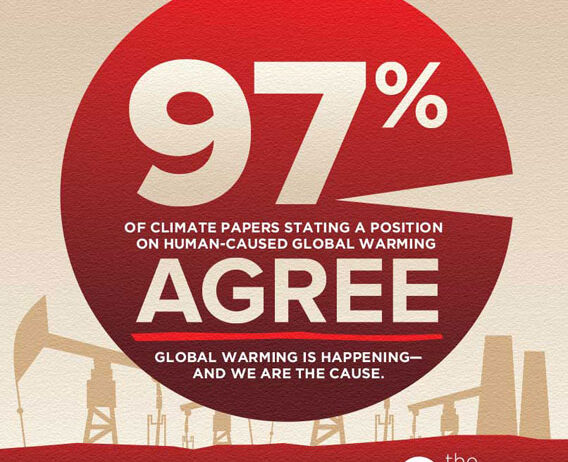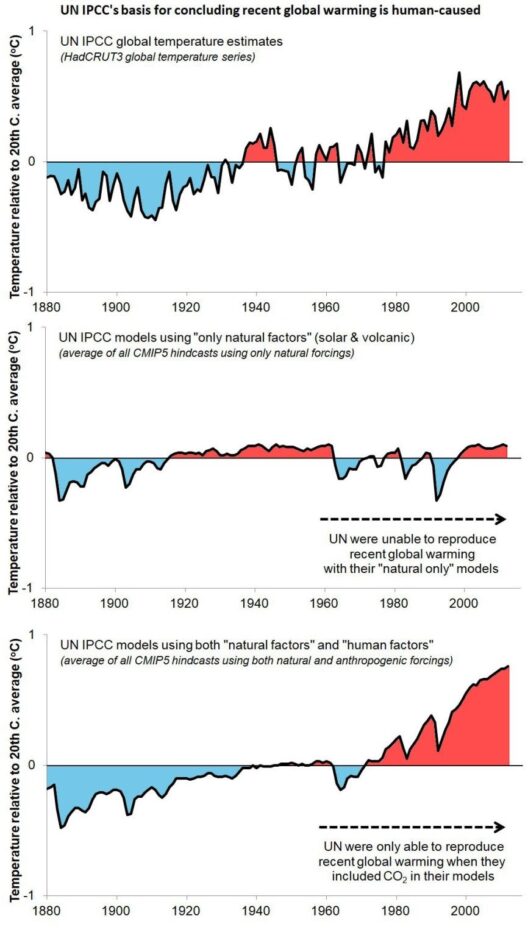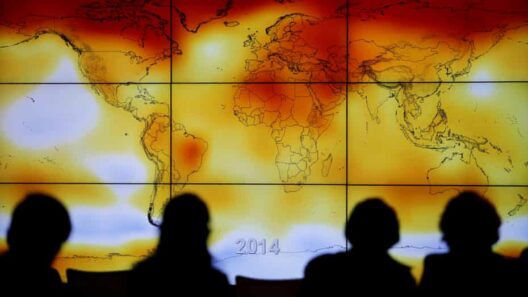In the realm of climate science, the assertion that “97% of scientists agree on global warming” often resonates like a clarion call echoing through a forest of doubts and misconceptions. This irrefutable statistic serves as both a bastion of scientific consensus and a beacon to illuminate the fraught landscape of climate discourse. However, it is critical to delve deeper into the data from which this consensus arises to discern the nuances that lie beneath the surface.
The origin of the 97% figure stems from research synthesized over the years, notably by examining thousands of peer-reviewed scientific papers. A rigorous analysis reveals that among articles expressing a position on climate change, a remarkable majority endorse the reality of anthropogenic global warming. This monumental agreement parallels a well-conducted orchestra, where each instrument contributes to a harmonious symphony affirming that human actions are a significant driver of climate change.
Moreover, it’s essential to distinguish between various layers of agreement within the scientific community. While some may quibble about the exact percentage, what remains indisputable is the overwhelming acknowledgment among climate scientists of the reality and severity of global warming. Much like a vast ocean that appears calm on the surface, a multitude of undercurrents and complexities exist beneath; understanding these could provide clarity and mitigate misunderstandings.
The metrics used to gauge this consensus are imperative. Consider a vast library overflowing with tomes—each volume representing a scientific study. When scrutinized, it reveals a widely cited series of reports in which a staggering 97% of climate scientists agree that the earth is warming and that human activity is the principal catalyst. The implications of this consensus are far-reaching and profound, akin to a butterfly flapping its wings, triggering a series of consequential events across the globe.
Opponents of this claim often argue for a false balance, emphasizing the relatively few dissenting voices within the scientific community. This dichotomy suggests that there is significant debate when, in reality, the counts of dissent are minuscule compared to the monolithic consensus. In fact, the rarity of credible skepticism among climate scientists can be likened to a handful of stars visible in a night sky obscured by clouds; while they exist, their lack of luminosity pales against the backdrop of overwhelming certainty.
Additionally, the term “scientist” encompasses a broad spectrum of disciplines, yet the consensus is particularly pronounced in the realm of climatology and related fields. One must consider that expertise plays a pivotal role in shaping this consensus. Though a physicist or a geologist may contribute valid insights, climatologists hold the specialized knowledge necessary to navigate the intricate variables that influence our climate system.
Furthermore, peer-reviewed research functions as a cornerstone of scientific inquiry, presenting rigorous empirical evidence that contributes to the consensus. The process itself is akin to a stringent filter that retains only the most veritable findings, ensuring that only sound scientific principles and substantiated data prevail in the realm of climate discourse. This filtering mechanism serves to bolster the legitimacy of the claim that a vast majority of scientists affirm the realities of global warming.
As climate change continues to manifest through erratic weather patterns, rising sea levels, and unprecedented natural disasters, the implications of the 97% agreement become more urgent. Picture a slowly boiling pot of water. Initially, the change may be imperceptible, yet if left unchecked, the escalation transforms it into a steam-laden inferno. Similarly, the ramifications of ignoring the consensus could unfurl catastrophic outcomes for future generations. The stakes are profoundly high, and understanding the enormity of scientific agreement on climate change is vital for proactive measures.
Nevertheless, the discussion around global warming extends beyond mere statistics. It invokes ethical considerations encompassing intergenerational responsibility, equality, and social justice. As we stand on the precipice of critical ecological transformations, acknowledging the vast scientific consensus empowers policymakers and citizens alike to advocate for meaningful action—an urgent clarion call for an indomitable course correction.
In recent years, an array of public engagement initiatives have emerged to disseminate knowledge and spur dialogue about climate change. These efforts aim to weave a tapestry of understanding, in which everyone can partake. Through outreach programs, educational curricula, and community workshops, the narrative surrounding global warming is reshaped from a contentious debate to a unified quest for solutions. Each discussion serves as a thread that fortifies the fabric of awareness, urging society to confront the realities of climate change head-on.
The emotive power of storytelling can play a pivotal role in this endeavor. Invoking allegory can transform abstract statistics into relatable experiences, allowing individuals to grasp the urgency of climate action. Visual metaphors—like the aforementioned boiling pot—can galvanize people toward a collective acknowledgment of these stark realities. This is paramount, as the consequences of inaction ripple through each segment of society, much like stones cast into a tranquil pond.
In conclusion, while the statistic that 97% of scientists agree on global warming may at times be contentious, the underlying truth remains steadfast. A large proportion of the scientific community concurs on the pressing nature of climate change precipitated by human activity. This profound agreement ought to motivate individuals and policymakers alike to confront climate change head-on, fostering a world that prioritizes sustainability. The path forward is illuminated by the collective wisdom of experts, and it is incumbent upon society to heed their call to action. In the symphony of climate science, may we all play our part, contributing to a resounding crescendo of awareness and action that echoes throughout generations to come.








